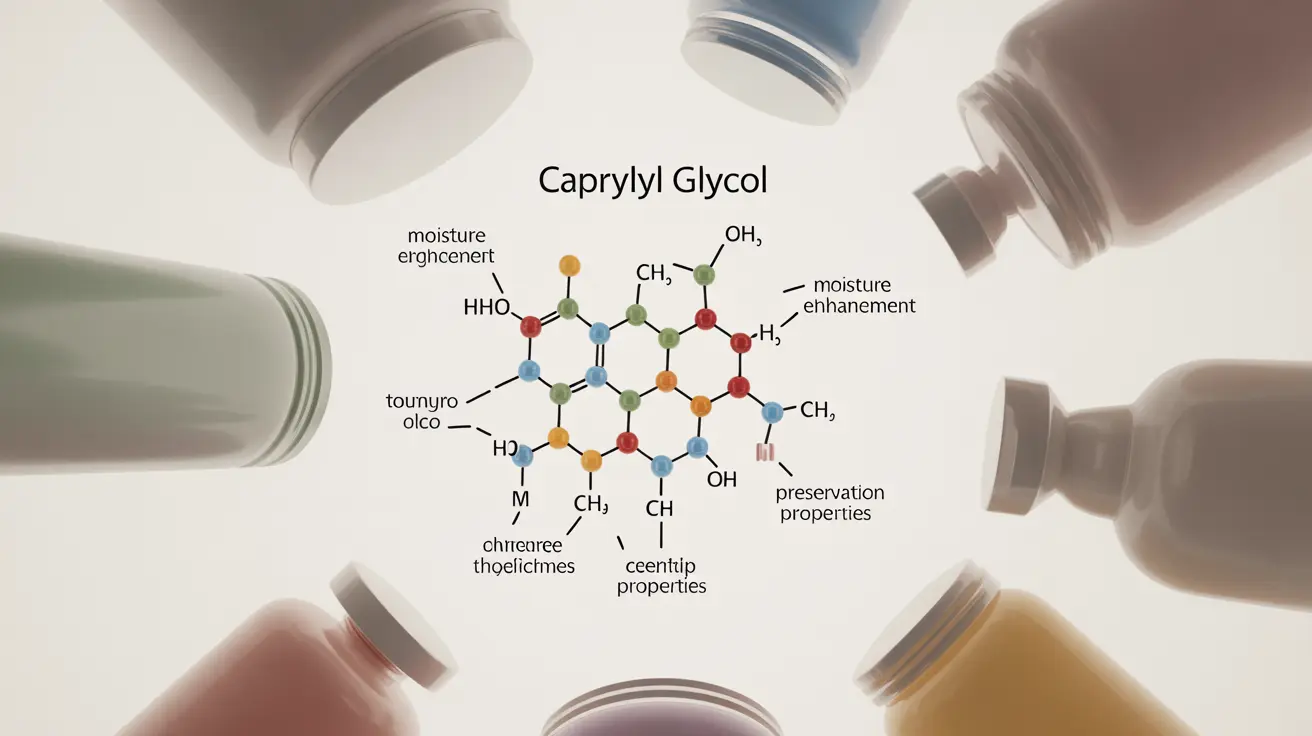If you've ever examined the ingredient list on your favorite skincare products, you might have encountered caprylyl glycol. This versatile compound plays multiple important roles in modern skincare formulations, from enhancing product effectiveness to ensuring their longevity and safety. Understanding its benefits and properties can help you make more informed decisions about your skincare routine.
In this comprehensive guide, we'll explore what caprylyl glycol is, its various benefits for your skin, and important safety considerations to keep in mind when using products containing this ingredient.
What is Caprylyl Glycol?
Caprylyl glycol is a multifunctional ingredient derived from caprylic acid, a naturally occurring fatty acid found in coconut oil and palm kernel oil. It serves as both a skin conditioning agent and a preservative enhancer in cosmetic and skincare formulations.
Key Benefits in Skincare
Moisture Enhancement
One of the primary benefits of caprylyl glycol is its ability to act as a humectant, helping to attract and retain moisture in the skin. This property makes it particularly valuable in hydrating skincare products, where it works to maintain optimal skin moisture levels.
Preservation Properties
Caprylyl glycol exhibits antimicrobial properties that help protect cosmetic formulations from bacterial and fungal growth. This natural preservation capability makes it an excellent alternative to more aggressive synthetic preservatives.
Texture Enhancement
Products containing caprylyl glycol often have improved texture and feel on the skin. The ingredient helps create smoother, more easily spreadable formulations that absorb well into the skin.
Safety and Skin Compatibility
Caprylyl glycol has been extensively studied and is generally recognized as safe for use in skincare products. It's known for its gentle nature and compatibility with most skin types, including sensitive skin.
Usage in Different Product Types
You can find caprylyl glycol in various skincare and haircare products, including:
- Moisturizers and serums
- Face cleansers
- Hair conditioners
- Anti-aging products
- Body lotions
Best Practices for Use
While caprylyl glycol is generally safe, it's always wise to follow these guidelines:
- Perform a patch test before using new products
- Follow product instructions for application
- Pay attention to product concentration levels
- Discontinue use if irritation occurs
Frequently Asked Questions
What are the skincare benefits of using products with caprylyl glycol?
Products containing caprylyl glycol offer multiple benefits, including enhanced moisture retention, improved product preservation, and better texture. It helps keep skin hydrated while ensuring product stability and effectiveness over time.
Is caprylyl glycol safe for sensitive or acne-prone skin?
Caprylyl glycol is generally considered safe for sensitive and acne-prone skin. It has a gentle nature and rarely causes irritation. However, as with any skincare ingredient, individual reactions can vary, so it's recommended to perform a patch test first.
How does caprylyl glycol help in preserving skincare and haircare products?
Caprylyl glycol acts as a preservation enhancer by exhibiting antimicrobial properties. It helps prevent the growth of harmful bacteria and fungi in cosmetic formulations, extending product shelf life while maintaining safety and efficacy.
Can caprylyl glycol reduce signs of aging like fine lines and wrinkles?
While caprylyl glycol primarily functions as a moisturizer and preservative, its hydrating properties can help improve skin appearance by maintaining proper moisture levels. Well-hydrated skin often appears plumper and shows fewer visible fine lines, though it's not directly marketed as an anti-aging ingredient.
What should I know about potential side effects or allergies related to caprylyl glycol in skincare?
Adverse reactions to caprylyl glycol are rare, but some individuals may experience mild irritation or sensitivity. If you notice redness, itching, or discomfort, discontinue use and consult with a healthcare provider. Always perform a patch test before incorporating new products into your skincare routine.




